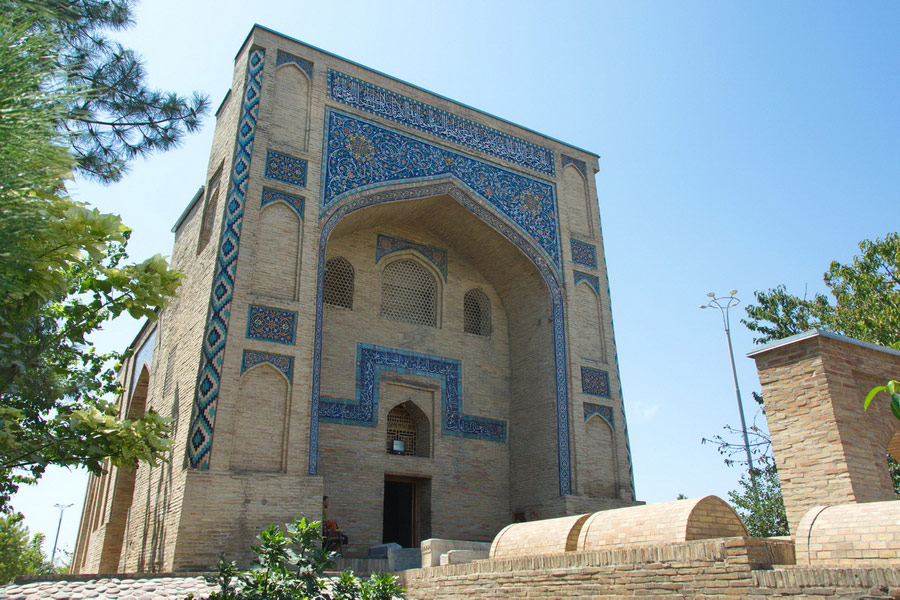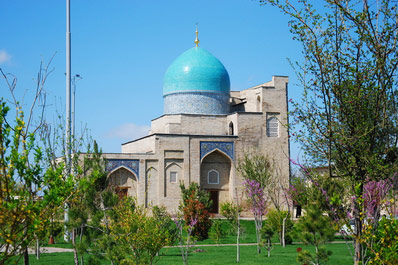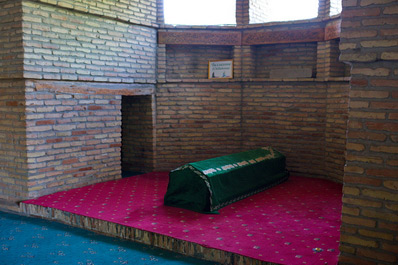Mausoleum of Kaffal Shashi, Tashkent

Over a thousand years ago, in the 10th century, Abu Bakr Muhammad Kaffal Shashi was born in the region of Tashkent, known then as Shash. He grew up to be a prominent Islamic preacher, scientist, and theologian, respected throughout the Muslim world. The mausoleum of Kaffal Shashi is a key feature of the Hazrati Imam (Khast Imam) complex and one of its most impressive parts.
Known as the "Holy Imam", Kaffal Shashi traveled to many spiritual centers, studying in Bukhara, Samarkand, Damascus, and Baghdad, and made multiple pilgrimages to Mecca. He was a Quran and Hadith expert and a talented craftsman known for making door locks. The name "Kaffal" means "locksmith", reflecting his family's trade. However, his true passion lay in studying the Quran and the sciences. Through his travels and studies, he gained fame for his vast knowledge and numerous talents.
Throughout his life, Kaffal Shashi authored several theological works and writings on philosophy, logic, and jurisprudence. After his death in 975, his tomb became the main holy site in Tashkent. The Sheibanid dynasty, in honor of this great Islamic preacher, commissioned the construction of the mausoleum and the entire Hazrati Imam religious ensemble.
The Kaffal Shashi Mausoleum is a majestic structure with a beautifully decorated portal adorned with blue majolica patterns. Unlike typical medieval tombs, it is designed like a hanaka, a shelter for pilgrims and travelers. In Muslim tradition, being buried near a spiritual luminary like Kaffal Shashi was considered an honor, as it was believed that his spirit would guide the souls of those interred nearby. Consequently, many noble individuals of Tashkent were buried around his tomb over time.
Legends about Abu Bakr Kaffal Shashi's great deeds still resonate with the people of Uzbekistan. One such tale recounts how, during the Byzantine crusades, he composed an elegant poem in response to the mocking messages of Byzantine Emperor Nicephorus II Phocas. His skillful words and vivid remarks impressed the emperor, averting a destructive raid.
Today, Islamic pilgrims from around the world visit Tashkent to see the mausoleum of Kaffal Shashi and the majestic Hazrati Imam complex. This ensemble has been the spiritual center of Tashkent for centuries, reminding its residents of their remarkable native who lived over a thousand years ago.



